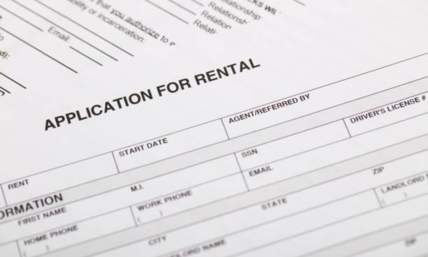Living In One State Working In Another: Income Tax
Have you ever asked, “How do I file a tax return while living in one state and working in another?” If your status is living in one state working in another, income tax returns are a little more involved. Depending on where you live, you may have to file returns in more than one state. Don’t get overwhelmed with filing your state income tax working in another state. Filing in more than one state is not as intimidating as it sounds. Keep reading to answer the question “how do I handle income tax working in another state?”
Who Files State Income Tax Working in Another State?
When do you need to know the answer to how do I file a tax return while living in one state and working in another? There are multiple reasons why you might have an income tax from another state. The first and most common reason is you live close to the state border. You may live in one state and go across the border to go to work.
Another reason might be that you own property in another state that you rent out. Perhaps you have a vacation home or future retirement home. If you rent that out, the rent is income and you need to report it on your tax return accordingly.
How Do I Handle Income Tax Working in Another State if I Work Remotely?
If you work remotely for a company that’s headquartered in another state, most of the time you just need to file in the state where you are a resident. This certainly makes things much easier for consultants and freelancers who may do work for employers in multiple states! A fact that surprises many people about state income tax working in another state is, if you travel for work and spend even one day working in another state, you need to file an income tax return for that state!
This could affect you if you consult for a company in another state and go to visit their offices in person. Or, if your employer sends you to another state for a sales meeting or to train a new employee. Even though you are living in one state, working in another income tax is still collected for that day in the other state.
A good rule of thumb is, if you were physically in a state, you’ll likely need to file a return for that state. The exception is if you travel to or work remotely for a company in a state that doesn’t collect income tax. There are nine states without income taxes: Alaska, Florida, Nevada, New Hampshire, South Dakota, Tennessee, Texas, Washington, and Wyoming.
If you work in one of these states, it isn’t necessary to file a state income tax return.
How Do I File a Tax Return While Living in One State and Working in Another?
If you’re living in one state working in another, income tax reporting takes an extra step. When you’re reporting state income tax, always start with the state where you are a resident. Report all of your income there, regardless of the source of your income to reduce the possibility of a tax audit. Then, you will file ‘non-resident income taxes’ in any other states you worked.
The only times you don’t need to do this is if you work in one of the states listed above that don’t have income taxes. One note, if you live in one of the states that don’t have an income tax and work in a state that does have income taxes, then you file a non-resident income tax to the state where you did the work.
How Do I File a Tax Return While Living in One State and Working in Another with Reciprocity?
The exception to state income tax working in another state is if you work in a state that has a reciprocal agreement with the state where you live. Some, not all, states have reciprocating tax agreements with bordering states. If you’re living and working in two states with a reciprocating agreement, then you might not have to file two-state returns.
Reciprocity is not automatic. When you’re eligible for tax reciprocity between states, you must specifically request that your employer deduct taxes based on your state of residence and not the state where you are working. If you don’t you both states may tax you and you'll need to file two state income tax returns.
Other Living in One State Working in Another Income Tax Questions
If your employer made a mistake in your state tax withholding, it’s annoying but it isn’t complicated to fix. For instance, if they accidentally withheld taxes for a state you don’t live or work in, you can get your money back by filing a tax return for that state. Learn how to read the different abbreviations on your payroll stub so you can understand what your employer is withholding.
This will help avoid mistakes like this from happening in the future. If you’re wondering, “how do I handle income tax working in another state on my Federal Tax Return?”, rest easy. Federal income taxes are separate from your state taxes.
The IRS governs Federal taxes, while state taxes are managed by each individual state’s own entities. For your federal taxes, you only need to report your entire income to the IRS, it isn’t divided by state. Finally, for worries about double-taxation, this is also addressed on your resident tax return. If you file multiple state income tax returns, you can usually claim a credit on your resident state return for any taxes you paid to the nonresident state.
In essence, although you have to file a return in both states, your income is not actually being taxed twice.
Also read: How Much Is Social Security tax?
How Do I Handle Income Tax Working in Another State?
When you’re faced with living in one state working in another, income tax returns can be intimidating. Filing both a resident and nonresident return isn’t necessarily more difficult, just a little more time-consuming. You can use a tax-filing software to walk you through the process or utilize a professional tax accountant to make sure your returns are filed correctly.
Check out our pay stub samples to get you started! Try out our paystub creator today! You might want to check out which states do not have income tax and how long should you keep your paystubs as well.















